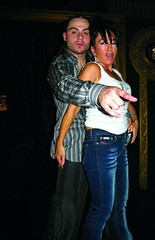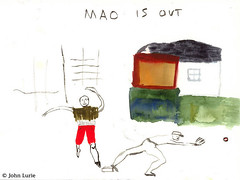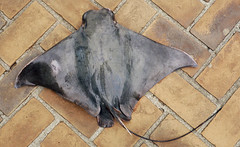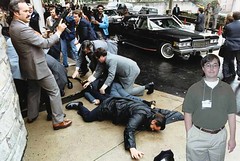Latest
- Got Towed, Drank, Danced a Little ...
- Hello? Anyone Up For a China Rant?
- Cat Shit Coffee
- My Secret Apartment
- Ok, I'll Play Some Guitar for You
- I'm pretty sure I just went to the best sushi rest...
- The Pinnacle of Sport Fishing: Catching a Blue Marlin
- Bars in India: Like 100 Years Ago in the USA
- Atlantic Rockfishing
- They Hauled My Next-Door Neighbor Away in an Ambul...
Best of
Archives
- July 2004
- November 2004
- December 2004
- January 2005
- February 2005
- March 2005
- April 2005
- May 2005
- June 2005
- July 2005
- August 2005
- September 2005
- October 2005
- November 2005
- December 2005
- January 2006
- February 2006
- March 2006
- April 2006
- May 2006
- June 2006
- July 2006
- August 2006
- September 2006
- October 2006
- November 2006
- December 2006
- January 2007
- February 2007
- March 2007
- April 2007
- May 2007
- June 2007
- July 2007
- August 2007
- September 2007
- October 2007
- November 2007
- December 2007
- January 2008
- February 2008
- March 2008
- April 2008
- May 2008
- June 2008
- July 2008
- August 2008
- September 2008
- October 2008
- November 2008
- December 2008
- January 2009
- February 2009
- March 2009
- April 2009
- May 2009
- June 2009
- July 2009
- August 2009
- September 2009
- October 2009
- November 2009
- December 2009
- January 2010
- February 2010
- March 2010
- April 2010
- June 2010
- July 2010
- September 2010
- October 2010
- November 2010
- December 2010
- January 2011
- February 2011
- March 2011
- June 2011
- July 2011
- August 2011
- September 2011
- November 2011
- July 2012
- October 2012
Blanketing opinions that I'll probably regret soon.
Monday, February 28, 2005
I don't think I can eat Indian food anymore ...
If you add curry to anything, it tastes the same. I can honestly say that of the 8,000 times I've eaten Indian food, I've never felt that it was either amazing or horrible. It's always somewhere in the middle. The only time I felt I'd eaten really good Indian food was in New York where the restaurant had some kind of scallop dish. So, in short, I thought it was great because it wasn't even traditional Indian food. I heard somewhere that hot climates produce spicy foods to cover up the taste of rotten meat. I think it's true in the case of curry. I could probably add curry to feces and it wouldn't taste horrible or great, just somewhere in the middle.
And it's mushy. Seriously. It's just gobs of currified stew, slopped on a plate and mixed with rice. And no matter what, it's got that soft texture, that doughy doughiness.
And at the end of the evening, there's nothing much to it. Chicken is the most basic meat around, they don't eat beef or pork, and lamb is tough and easily overcooked. Otherwise, they choose some tasteless vegetables like chick peas and add the curry to mush it up and serve it on a plate. Ugh.
If there were no vegetarians in the US, there would be almost no Indian restaurants. As for me, I'll be satisfied if I have it fewer than two times a year.
Ok, I admit that a mango lassi is great, but that's it.
Saturday, February 26, 2005
The Yuppie
_________________
The Yuppie. This widely reviled Reagan-era social construct opened up to ordinary people countless pleasures and pursuits once reserved for the upper class, from "gourmet" food to good-looking cars to nicely designed furniture to fancy-pants literary devices to an obsession with Tuscany. In striving "upward," Yuppies spurred a massive exfoliation of choice at all levels of American society.
_________________
The list includes a range of people from all areas of the political spectrum, including Ted Turner, the Tiananmen Square martyr and Clarence Thomas, but the Yuppie description was so well put. Isn't it true though? I'm not going to chime in on the yuppie/gentrification debate too much but I will say a few words here.
I think it's safe to say that people who are "anti-yuppie" also generally believe the following points:
- Middle class and upper-middle class people should not be able to move anywhere they want, especially if it means to an urban neighborhood of poor white artists and minorities.
- Making money and being successful are desires that are wrong.
- Wanting quality material things---cars, furniture, clothes, etc---is also wrong.
- Poor, just-out-of-college white people are the only white people who deserve to live in poor, minority-dominated urban neighborhoods.
- There must be strict controls on the price of real estate if it occurs in an urban neighborhood. The rest of the world needs no such controls.
- The poor are more noble than people with money.
- Neighborhood economic improvement must only occur if nothing of note really changes and no one has to leave.
- Renting a home is more noble than owning one.
- The middle/upper-middle class person who moves into an urban neighborhood that's improving is directly responsible for those who have to move out because of increasing rent prices. As if the Yuppie is evicting people him/herself.
Friday, February 25, 2005
Work
A Thought I'll Probably Regret Soon
Every time a suicide bomber blows him/herself up, isn't that one less suicide bomber in the world? Ok, they usually take out like at least 3 innocent civilians but the suicide bombers are such a minority that aren't their numbers already very low? And since they're all suicide bombers they'll all be dead soon, right? I think that's safe to say. So the problem could be solved soon once they've depleted all their numbers.
Or, I could be totally wrong and that's the stupidest thing I've ever said.
Thursday, February 24, 2005
"Telecommuting"
Having made that disclaimer, I'd like to have my own mini-rant about telecommuting. What the fuck is that shit? This is the workingman's dream come true. In 2005, one can stay the fuck home and get paid for it. Every time I see the work schedule of everyone at my organization and see that someone is "telecommuting" I wonder if everyone else is sitting in their offices and getting a good snicker out of it. Lucky dogs. Who the hell wouldn't sleep in and run errands all day? How the hell would the boss find out about it if you did? It's a great work world we live in today. The union movement must be proud as hell that someone could tell their boss that they're telecommuting and do it with a straight face.
Reality TV

Jay
Originally uploaded by lonniebruner.
For the first time, I actually cared about a reality TV show and when the guy won, I was literally jumping up and down and giving high-fives to my wife. I'm not telling you what the show was but this is a picture of the winner.
Wednesday, February 23, 2005
They All Want To Come Here
Basically, of the 180 consular posts the United States has around the world, it's assumed that the citizens of all those countries are all dying to get here to stay and work. And they are, in fact. And if these poor, huddled masses cannot prove without a doubt that they have no intention of staying in the US after their temporary stay, and that they won't become a "public charge" (love that term) the US Consulate will not give a temporary visa to them to come here.
This further proves my point that the US economy is an unsinkable freight ship with a 4-foot steel hull. It's only going upward and forward no matter how many "recessions" we go through or how many people claim that the economy is "in the shitter". Don't believe it for a second. Just ask the millions who are spending their last pennies on visa fees to go down to the US consulate in their squalid capitals to be denied entrance in the United States.
And those who do get in---of the ones I've spoken to at my job---often go to immigration lawyers to get them work visas, permanent residences or waivers of the 2 Year Foreign Residency Requirement tacked onto their stay here. This country has so much to offer in terms of economic advancement for immigrants. It's just unbelieveable.
Monday, February 21, 2005
Hair and Grime
Let me just give one example of how bad it was. The basement was the worst of it because that's where the washer and dryer are. There were so many years of dryer sheets and lint build up on the floor that I had to use a full floor scraper to get it up. Here's a brief list of the shit I have recently handled, cleaned or thrown out:
- Encrusted pubic hair
- Spiderweb-covered, disassembled christmas tree
- 50 empy boxes, stuck to the floor, piled high
- 35 sheets of glass
- Moldy dry wall
- 8 boxes of musty clothes
- 2 broken air conditioning units
- desks, tables, broken chairs
Sunday, February 20, 2005
Just an example
_____________
my man and i leave for vegas/ california on sunday... i am wicked excited! how are you guys doing? i miss you two a lot. your wife mentioned some party in early march....my birthday is on saturday the 5th. we should get together next month. i have been thinking a lot about cambodia, and i can't wait. i want to learn some of the language. hope you are well, keep in touch.
yours,
*&m
p.s. are you going to knit us some bathing suits for cambodia?
Saturday, February 19, 2005
Salty Dogs Soon to Become Suburby Dogs
________________________
Years ago, before the watermen had to become bus drivers and the crab shanties were replaced by new red-brick houses, everybody on St. George Island knew about the arster, the kitchen and the sun dog.
The arster, of course, was a bivalve -- called an "oyster" by some people. "The kitchen" was a spot in the Chesapeake Bay where arsters were caught. And a "sun dog" was a haze that portended bad weather, a sign it was time to leave the kitchen and head home.
These words were part of the island's local dialect, but now, like many of the other dialects, St. George-ese is fading. Many of the watermen who spoke it have left, and in their place are newcomers from the Washington suburbs and elsewhere.
Experts say that the dialects, which encoded years of memories and tradition in small communities, are eroding under pressure from expanding suburbs and a declining dependence on the bay.
Now, linguists are trying to record and preserve these ways of speech. They fear that soon the bay will be overtaken by a suburb's interchangeable sense of place -- and that the land and language here will be the same as anywhere else.
"The change in the dialect is so reflective of the demographic change," said Emma Trentman, who studied Calvert County's dialect as a Georgetown University graduate student. "When you use the dialect, you're basically using a piece of history."
Linguists are careful to stress that there is not one single Chesapeake Bay dialect but rather a vast array of accents and vocabularies.
There are distinctively southern speakers, like Tidewater Virginians who say "kyar" when they mean "car." Further north are the residents of "Bawlmer, Merlin," and along the Eastern Shore, in isolated waterman's communities, people turn "wife" into "wuife."
But to the west of this cacophony, there is Washington -- a demographic behemoth, breaker of dialects.
Almost 50 percent of the region's residents were born in a state other than the one where they live, which is more than other big cities and close to twice the national average. Linguistically, that means "nobody really has any idea what Washington, D.C., is," said David Bowie, a linguistics professor at the University of Central Florida.
Linguists say this kind of dialect confusion is spreading to Southern Maryland, where tobacco fields and country stores have been giving way to subdivisions and Starbucks. In Calvert County and in the Charles County town of Waldorf, studies have found that southern pronunciations such as "tam" for "time" are disappearing.
Also declining is the lingo of tobacco farming, because many farmers have taken a state buyout.
Hagner R. Mister, a longtime Calvert tobacco farmer and former Maryland secretary of agriculture, said the term "stripping room" -- a place where tobacco leaves were taken off the stalk -- used to be common parlance.
Now, the phrase gets him funny looks. "People would say, 'Did I misunderstand you?' " Mister said. " 'Stripping room?' "
Jack Russell, with wife Viki Volk, laments the fading of the dialect on St. George Island. "We're getting yuppi-tized," he says. (Bill O'leary -- The Washington Post)
Across the country, linguists say, big cities such as Baltimore and New York safeguard dialects because native speakers are usually talking to one another. But in an area quickly turning into suburbs, such as Southern Maryland, every conversation with an outsider can exert a subtle pressure.
"If you realize that everywhere you're likely to go, there's a different norm, there's incentive . . . to change the way you talk a little bit," said Bowie, who studied Waldorf.
So far, there's been no comprehensive linguistic study of the bay's dialects to see if they're all facing the same fate as Southern Maryland speech. But changes have been noted by old-timers and local historians across the area.
Northern Neck native W. Tayloe Murphy Jr. -- the Virginia secretary of natural resources -- said residents used to say they lived "in" the Northern Neck. Now, he said, many say "on," as outsiders do.
In Delaware, historian Russ McCabe said he's seen the decline of "among-ye," which was that state's rare way of saying "y'all." One of the few times he's heard it recently was at a church in Gumboro, in south Delaware.
"This older fella looked at me and [said], 'Are among-ye going to stay for supper?' " said McCabe, who works for the state public archives. "I had a moment there, a twinge of almost sadness, because I hadn't heard that in 20 years."
St. George Island, a skinny strip of land two hours from the District, provides a microcosm of the region's changes. It once supported a thriving oyster industry, but then disease and pollution devastated the oyster crop.
Watermen left to seek other jobs, and new people came after sewer lines were extended there in 1990.
"They're just smotherin' us," said Russell, a native who stayed behind. "We're getting yuppi-tized."
Russell said the new residents have no reason to know the names of nearby oyster bars or the points of land that watermen used as landmarks. To the new people, he said, water is water. It's scenery.
The most prominent exception to these changes is Smith Island, Md., a marshy place with about 360 residents, reachable only by ferry.
Here, with a brogue that's been steeped in decades of isolation, Smith Islanders render house as "hace" and brown as "brain." They use words that are relics of the British English used by American colonists, such as "progging" -- which means to poke around the marshes looking for arrowheads.
University researchers were surprised recently to find that young Smith Islanders actually have a stronger accent than their parents. The researchers and islanders said they believe the change was a conscious attempt to assert the island's culture in the face of declining catches and rising water levels.
"They act like they want to be heard with it," said Jennings Evans, 74, a retired waterman and Smith Island's unofficial historian.
But when the ferry takes him to Crisfield, Md., on the mainland, Evans said he sees the way the rest of the bay is going.
He said Crisfield's natives used to have a nasal, whiny way of talking -- which sounded funny, even to a man who pronounces "sound" as "saned." But now, Evans said, he can hear it changing.
"Their whinin', " he said, "is declinin'."
Friday, February 18, 2005
Best Don't

Best Don't
Originally uploaded by lonniebruner.
This is my favorite "Don't" from Vice:
____________________
What you can't see is that his cornrow ponytails go all the way down to his ass. It's sad and scary what cocaine has done to comedians like John Belushi, but look what it does to Jersey trash. It makes them feel so sexy and confident, you'd almost forget we're dealing with a high-school dropout who can't spell "lamb" and a mother of two who thinks we are not horrified by her gray vagina.
Thursday, February 17, 2005
Best Do

Best Do
Originally uploaded by lonniebruner.
I've chosen my favorite "Do" from Vice Magazine. If you don't know, it's like the "Dos and Don'ts" section in women's magazines like Glamour but with an edge. Below is the clip attached to the above photo.
From Vice:
________________________
It's funny when girls wear tiny skirts in bars and do jokey sex poses, because we can all have a good laugh and then, when nobody else is looking, run to the bathroom and beat off like it's putting out a fire (which I guess it kind of is).
Wood as Flavor Enhancer
Tuesday, February 15, 2005
Atrendous

MaoIsOut
Originally uploaded by lonniebruner.
Speaking of bad art, my god man. John Lurie should definitely stick to taking celebrities out on fishing trips.
And watercolor no less! The only thing missing is the magnet holding it up. Please stop, John.
Monday, February 14, 2005
Awards for Art
This is pretty much like the Oscars, isn't it?: A bunch of self-important people giving awards to each other in a grand competition.
Not that I won't be interested to see who "wins", but maybe Chris Rock has a point (below). Do most Americans really give a flying shit who wins these things? Ok, it's not all bad, but let me just mention some movies that actually won Best Picture in recent times (in order of most to least number of Oscars): Titanic 1997; Shakesphere in Love 1998; Forrest Gump 1994; Chicago 2002. Lord ...
From Drudge:
________________________________
Veteran members of the Academy of Motion Picture Arts and Sciences have grown concerned over the choice of Chris Rock as host of this month's awards show.
Concern deepened after Rock claimed only gays watch the Oscars.
"I never watched the Oscars. Come on, it's a fashion show," Rock recently declared.
"What straight black man sits there and watches the Oscars? Show me one!"
Rock added: "Awards for art are fucking idiotic."
Academy members have privately called for Chris Rock to be removed as host, sources claim, fearing Rock may "tarnish" the reputation of the Academy.
"Simply put, this is a disgrace," one veteran Hollywood mogul, who asked not to be identified, said from Los Angeles.
"This guy is out there saying 'awards for art are fucking idiotic' and he is hosting the show produced by the Academy of Motion Picture Arts and Sciences? I guess the joke is on us!"
One nominated actress questions whether producer Gil Cates was even aware that Rock has "never watched the Oscars."
Other unpublicized comments made by Rock threaten to throw the scheduled Feb. 27 broadcast into complete chaos.
What will Rock be wearing to the show?
"Nothing against people who aren't straight, but what straight guy that you know cares? Who gives a fuck?" Rock explained.
Sunday, February 13, 2005
You know, maybe it's not half bad
Thursday, February 10, 2005
Fischerspooner #2

Fischerspooner#2
Originally uploaded by lonniebruner.
It's been a full 24 hours since I downloaded the whole album and I've listened to track 2 and 3 all day long. (15th Day and Emerge). As I said before, most of the rest of the album is mediocre.
I always do this to new music. I'll hate it in two weeks and never listen to this shit again. But right now I'm obsessed.
Those who know me would never say I'm an exaggerator. I've honestly listened to those two songs 25 times today. Might as well enjoy it while it lasts.
The Various Types of Beer
From Modern Drunkard:
____________________________________
The Wide World of Beers
When you were a teenager you probably thought all beers were just called “beer” or maybe “brewski” if you were feeling technical. But as a beer snob you should be aware that there are many subcategories of beers, in the same way that certain dogs are called “Cocker Spaniels” and “Rat Terriers,” and some large rats are called “Chihuahuas.”
ale: some purists will tell you this English brew is not really beer at all, but these are the same type of people who will tell you that drinking a case of beer in the company of your dog is not a “kick-ass time.”
bitter: this hoppy English stalwart is a favorite among elderly men who smoke pipes, carry change purses and will insist that Field Marshal Rommel was “indeed crafty as a fox, but no match for this cunning English bulldog.”
bock: this German beer is named for the billy goat, because, just like a billy goat, it’s lively, strong and smells like a billy goat.
doppelbock: German for double billy goat. You get the idea.
export: this is a type of beer so awful the locals refuse to drink it, so the brewery ships it off to foreigners who don’t know any better.
fruit: these flavored beers were introduced to appeal to women and certain men who get very defensive when you inform them they are plainly homosexual.
lager: there are those who like to say this light, golden beer is served cold so as to distinguish it from urine, but the truth of the matter is urine also has a much better head.
malt liquor: some will argue this is not beer at all, but let me tell you something: if it tastes like a duck, smells like a duck and makes you walk like a duck, it is probably malt liquor.
porter: this strong beer was named for the rugged laborers who made it popular in Old England and would quite frankly drink billy goat sweat if it got them drunk.
stout: these dark, rich beers are called such because after drinking a dozen of them you will feel stout enough to wrestle all four of the cops by yourself.
trappist: this type of ale is brewed by monks noted for their skill at trapping tourists in their monastery’s overpriced gift shops. They changed their name from trapper to trappist in 1816 when they realized they spoke French and thus needed a fancier title.
Excitement

Fischerspooner#1
Originally uploaded by lonniebruner.
Finally got this album 2 years late. I was so excited about it but when I finally got it all downloaded and listened to, there were only a few amazing tracks. Tracks that mesmerize you, so it's worth it. For "15th Day" I lose all sense of time for 4 whole minutes.
Wednesday, February 09, 2005
Winter's not all bad
Monday, February 07, 2005
How To Sail Across The Atlantic
From Adventure:
____________________________
Late one night in 1995, Judith and Mike Sleavin and their two young children were on their way from Tonga to New Zealand aboard their Compass 47, the Melinda Lee. Judith was on watch. Down below, the two kids and their father slept. Judith had just made an entry in the logbook and was climbing out of the cabin into the cockpit when a thousand-ton freighter sliced through the Melinda Lee, sending the boat to the bottom in a matter of seconds. Their son, Ben, who was sleeping in the forward berth, died instantly. Somehow Mike and daughter Annie crawled out of the cabin as the boat sank and were able to join Judith on a half-inflated dinghy that bobbed to the surface. But within a day, both father and daughter succumbed to hypothermia and died. Judith alone survived, floating for more than 60 hours and eventually landing on a beach in New Zealand's Bay of Islands.
Forget about the idea that the crews of freight ships are looking out for you and that they will nudge their behemoth one way or the other to sidestep a 38-foot sailboat. The crew is most likely watching videos or sleeping. And even if alert to your plight, don't assume they'll launch a rescue. Judith Sleavin recounts that after her boat was sunk, the freighter circled back and watched them for a few minutes before inexplicably sailing off.
Sunday, February 06, 2005
Haven't seen sunshine like that in months
Trying to get through winter

Leanboat
Originally uploaded by lonniebruner.
I just got the photos from my July 2004 sailing trip. This is a picture of the boat resting in the mud on the bottom of the Chester River at low tide at sunset.
Saturday, February 05, 2005
Ray-Ray

cownosedray
Originally uploaded by lonniebruner.
This is a picture of the type of ray we stepped on in the story I posted below on this blog.
My first Photoshop experience

Aftermath
Originally uploaded by lonniebruner.
I just learned Photoshop so I decided to include my friend in the aftermath of the Reagan assassination attempt. It's like magic! Wvallah! He was there!
Notice the guy on the left. He looks tough as hell with his brown loafers and moustache. That briefcase in the street is---I assume---where his Uzi came from. I want to design a red flag with that guy on it.
Iraq is not Vietnam: the Choir Invisible
From Slate.com, Christopher Hitchens:
___________________________________
To begin with, Vietnam had been undergoing a protracted struggle for independence since before World War II and had sustained this struggle militarily and politically against the French empire, the Japanese empire, and then after 1945 the French empire again. By 1954, at the epic battle of Dien Bien Phu, the forces of Ho Chi Minh and Gen. Giap had effectively decided matters on the battlefield, and President Eisenhower himself had conceded that Ho would have won any possible all-Vietnamese election. The distortions of the Cold War led the United States to take over where French colonialism had left off, to assist in partitioning the country, and to undertake a war that had already been lost.
Whatever the monstrosities of Asian communism may have been, Ho Chi Minh based his declaration of Vietnamese independence on a direct emulation of the words of Thomas Jefferson and was able to attract many non-Marxist nationalists to his camp. He had, moreover, been an ally of the West in the war against Japan. Nothing under this heading can be said of the Iraqi Baathists or jihadists, who are descended from those who angrily took the other side in the war against the Axis, and who opposed elections on principle. If today's Iraqi "insurgents" have any analogue at all in Southeast Asia it would be the Khmer Rouge.
Vietnam as a state had not invaded any neighbor and did not do so until after the withdrawal of the United States when, with at least some claim to self-defense, it overthrew the Khmer Rouge regime. Contrast this, even briefly, to the record of Saddam Hussein in relation to Iran and Kuwait.
Vietnam had not languished under international sanctions for its brazen contempt for international law, nor for its building or acquisition, let alone its use of, weapons of mass destruction.
Vietnam had never attempted, in whole or in part, to commit genocide, as was the case with the documented "Anfal" campaign waged by Saddam Hussein against the Kurds.
No car bomb or hijacking or suicide-bombing or comparable atrocity was ever committed by the Vietnamese, on American or any other foreign soil. Nor has any wanted international gangster or murderer ever been sheltered in Vietnam.
American generals and policymakers could never agree as to whether the guerrillas in Vietnam were self-supporting or were sustained from the outside (namely the northern half of their own country). However one may now view that debate, it was certainly true that Hanoi, and the southern rebels, were regularly resupplied not by minor regional potentates but by serious superpowers such as the Warsaw Pact and China, and were able to challenge American forces in battlefield order. The Iraqi "insurgents" are based among a minority of a minority, and are localized geographically, and have no steady source of external supply. Here the better comparison would be with the dogmatic Communists in Malaya in the 1940s, organized principally among the Chinese minority and eventually defeated even by an exhausted postwar British empire. But even the die-hard Malayan Stalinists had a concept of "people's war" and a brave record in fighting Japanese imperialism. The Iraqi "insurgents" are dismal riff-raff by comparison.
Where it is not augmented by depraved Bin Ladenist imports, the leadership and structure of the Iraqi "insurgency" is formed from the elements of an already fallen regime, extensively discredited and detested in its own country and universally condemned. This could not be said of Ho Chin Minh or of the leaders and cadres of the National Liberation Front.
The option of accepting a unified and Communist Vietnam, which would have evolved toward some form of market liberalism even faster than China has since done, always existed. It was not until President Kennedy decided to make a stand there, in revenge for the reverses he had suffered in Cuba and Berlin, that quagmire became inevitable. The option of leaving Iraq to whatever successor regime might arise or be imposed does not look half so appetizing. One cannot quite see a round-table negotiation in Paris with Bin Laden or Zarqawi or Moqtada Sadr, nor a gradually negotiated hand-over to such people after a decent interval.
In Vietnam, the most appalling excesses were committed by U.S. forces. Not all of these can be blamed on the conduct of bored, resentful, frightened conscripts. The worst atrocities—free-fire zones, carpet-bombing, forced relocation, and chemical defoliation—were committed as a direct consequence of orders from above. In Iraq, the crimes of mass killing, aerial bombardment, ethnic deportation, and scorched earth had already been committed by the ruling Baath Party, everywhere from northern Kurdistan to the drained and burned-out wetlands of the southern marshes. Coalition forces in Iraq have done what they can to repair some of this state-sponsored vandalism.
In Vietnam, the United States relied too much on a pre-existing military caste that often changed the local administration by means of a few tanks around the presidential palace. In the instance of Iraq, the provisional government was criticized, perhaps more than for any other decision, for disbanding the armed forces of the ancien regime, and for declining to use a proxy army as the United States had previously done in Indonesia, Chile, El Salvador, and Greece. Unlike the South Vietnamese, the Iraqi forces are being recruited from scratch.
In Vietnam, the policy of the United States was—especially during the Kennedy years—a sectarian one that favored the Roman Catholic minority. In Iraq, it is obvious even to the coldest eye that the administration is if anything too anxious to compose religious differences without any reference to confessional bias.
I suppose it's obvious that I was not a supporter of the Vietnam War. Indeed, the principles of the antiwar movement of that epoch still mean a good deal to me. That's why I retch every time I hear these principles recycled, by narrow minds or in a shallow manner, in order to pass off third-rate excuses for Baathism or jihadism. But one must also be capable of being offended objectively. The Vietnam/Iraq babble is, from any point of view, a busted flush. It's no good. It's a stiff. It's passed on. It has ceased to be. It's joined the choir invisible. It's turned up its toes. It's gone. It's an ex-analogy.
Friday, February 04, 2005
Froth and the Fury
_________________________________
My second annual Chesapeake Bay sailing trip took place last summer aboard my 23-foot sloop. From my first trip I knew that the Bay was full of possibilities but could never have imagined that my trip would include meatball surgery or that I’d come uncomfortably close to some of the Bay’s largest fish. I guess this is what draws me to the Chesapeake year after year.
I had the same crew as the previous year although we made some changes in our route. Instead of heading south from my marina at Rhode River, we would go north to visit Dustin, an old college buddy whose parents lived at a waterfront property in Chestertown, Maryland. We were excited for things to come, including motoring under the Route 213 drawbridge to get to the property. On Wednesday everything was ready to go with a new spinnaker pole that I’d bought cheap at a local used sail equipment store.
We headed out early Thursday with “sheep in the pasture”, meaning there were whitecaps on the bay with high wind. We were heeling up nicely, cruising at about seven knots toward the mouth of the Chester. I’d had my crew read Joseph Conrad’s “Heart of Darkness” to get them ready for the long motor trip upriver to our final destination at Dustin’s parents’ house. That book was good preparation but instead of meeting a half-mad trader like Mr. Kurtz in the novel, we were going to meet Dustin’s Scottish-born father, a mad scientist type who had developed some important discovery that contributed to the field of gastroenterology. We couldn’t wait to see him and his family. When the wind started to die, dusk began to fall and we decided to settle down for the first evening.
Our dinner was simply a celebration of life. We packed steaks, beers and poetry into watertight bags and waded ashore. While the flames of the sand-set grill lit his face from below, Mason recited an epic poem he’d written about sea travel. It was like no poetry reading I’d every witnessed. It was full of blood and beer-swilling boyhood adventure. After the grill was ready we cooked up the steaks and chewed down these half-cooked pieces of meat.
Shortly after we started wading back to the boat we began to step on something alive under the pitch-black water. These stepped-on creatures felt to us like slippery dogs. They were knocking us off balance as they swam away from our feet and we screamed out loud into the night. We had no idea what kind of large fish we were walking on but Mason and Rollin’s idea for protection was to push me, their captain, in front so I’d step on the beasts before they could. It wasn’t until I’d gotten home and posted on a fishing message board when I figured out that we had been stepping on cow-nosed stingrays.
The next day we motored our way up the Chester River to the heart of darkness. On shore was a rural idyll of rolling green hills and farmland. When we arrived at the drawbridge in Chestertown we were excited to blow our air-horn to signal the draw-tender to raise the bridge. We’d read that blowing the horn is how it’s done but a five-second blast resulted in no lifted bridge. Finally we just called the draw-tender at the cell phone number posted on the concrete bridge pillar. Up it went and we motored smoothly through. Shortly, we spotted the mad doctor’s house on the right.
Dustin’s parents were perfect hosts and we were treated to a crab feast on the sprawling waterfront lawn at sunset. It was low tide and my boat rested firmly on the mud bottom of the river, listing to its side. After dinner the crabs had digested enough to take a walk through the countryside at night.
We headed out, drinks in hand, toward the cornfields and darkness of the outskirts of Chestertown. Finishing my drink, I stowed the empty bottle in my pocket. Feeling the need to behave like children, we played the game of who-can-scare-the-other-guy-the-most. As I lunged out from the edge of a cornfield to scare Rollin, I fell right on the bottle which shattered in my pocket with the force of my body hitting the ground hard. As I stood up, I felt a warm drip and trickle of blood down my leg and onto my bare feet. Lifting my pant-leg exposed the deepest cut I’d ever seen on my body.
Not wanting to go to the emergency room and not having an insurance card on me, we convinced Dustin’s little sister to snag her dad’s doctor’s office keys and that Mason would stitch me up. Luckily, Mason is a Physician’s Assistant, having spent the last few years sewing up wounds almost daily.
As we walked into the doctor’s office everyone set to work trying to find painkiller, rubber gloves, gauze and stitching. Meanwhile, I lay on the table in my briefs while the sticky blood was blotted off of me. Mason then rubbed alcohol-soaked gauze through the bloody gash on my leg before he injected me with painkiller. In no time he set to the business of nervously sewing five stitches into the side of my thigh. After Finishing up, we locked the office and walked a block to the nearest bar so as not to interrupt the flow of the evening.
The next day we motored back down the Chester out to the Chesapeake. We had a full final day’s trip ahead of us crossing the Bay. It was overcast and windy and there wasn’t a sole but us out there. We made it back early and the stitches in my leg were feeling fine. In a span of a couple of days I had enough stories to last me through the year. But as I’ve come to realize in this second annual trip, there are no shortage of stories to be had on the Chesapeake in summertime.
Wednesday, February 02, 2005
Celtic Tiger
From the New York Times:
___________________________________
Between sips of caffe latte and laments about the staggering cost of property here, the Irish are beginning to ask themselves a 21st-century question: Who do we want to be, as a country, now that we have all this money?
"We are certainly in new territory," said Joseph O'Connor, a best-selling Irish novelist who recently wrote "Star of the Sea." "We haven't been here before."
It was not so long ago that Ireland was a threadbare nation, barely relevant in European affairs. Finding a job meant hopping an airplane out of the country.
But Ireland's jump into the European Union changed all that. In a little more than a decade, the so-called Celtic Tiger was transformed from one of the poorest countries in Western Europe to one of the richest in the world.
But that new status is bringing with it an identity crisis, one that is forcing the country to grapple with the flip side of wealth and the obligations that money imposes. But some are beginning to point out that national wealth alone does not bring happiness. It can, in fact, bring new problems.
Irish newspapers have been filled with accounts of the pitfalls of growth: suicide is at record levels, divorce is increasingly common, property prices are soaring, traffic is horrendous, personal debt is spiraling up, faceless commuter suburbs are sprouting and teenagers are taking too many drugs.
A survey released last week by a market research group showed that most people did not feel their lifestyle had improved in recent years, primarily because the cost of living had exploded. Another study pointed out that stress levels everywhere in Ireland are ballooning.
Emily O'Reilly, the government's ombudsman and information commissioner, fanned the debate over Ireland's new identity in a November speech.
"Many of us recoil at the vulgar fest that is much of modern Ireland," Ms. O'Reilly began, before going on to cite its plunge into materialism, foul language, random violence, moral poverty and the culture of immediate gratification.
"Divorce was meant to be for the deeply unhappy, not the mildly bored," she said. "Sunday shopping was supposed to be a convenience for the harassed worker, not a new religion.
"Released from the handcuff of mass religious obedience, we are Dionysian in our revelry, in our testing of what we call freedom," she continued. "Hence the staggering drink consumption, the childlike showing off of helicopters and four-wheel drives and private cinemas, the fetishizing of handbags and high heels."
"We have enough money now for the first time to tackle poverty, inequality and a poor infrastructure," Rev. Sean J. Healy, director of the justice commission of the Conference of Religious of Ireland noted.
Eradicating poverty, everyone agrees, is a worthwhile goal. But Ireland was so poor for so long, and its poverty was so ingrained in its identity, that some wonder whether Irish culture and character will be steamrolled by the rollicking economy.
Mr. O'Connor, the writer, said a degree of reflection and self-criticism was welcome, but not if it spoiled the party altogether. The arts community, for example, is flourishing; there are more writers, painters, poets and musicians than ever before. Comedians and comedy abound, he notes, more so than in the past.
"Yes, people are commuting long distances now," he said. "But not nearly so long as the commute to, say, Australia, which is where many people had to go to find jobs a generation ago."
If anything, all the hyperventilating about Dublin's dazzling transformation seems to have confounded people, who are asking, basically, is this as good as it gets? "If Ireland is the best place to live," Mr. O'Connor said, good-naturedly, "God help us."
Resounding Silence Part Deux
_____________________________
Skeptics of President Bush's attempt to bring democracy to Iraq have been largely silent since Iraqis enthusiastically turned out for Sunday's elections.
Billionaire Bush-basher George Soros and Michael Moore were among critics of the administration's Iraq policy who had no comment after millions of Iraqis went to the polls in their nation's first free elections in decades.
The Carter Center determined that the security situation in Iraq was going to be too dangerous to send election monitors, so the Atlanta-based human rights organization founded by former President Jimmy Carter posted its personnel in neighboring Jordan.
Despite widespread predictions of spectacular terrorist attacks on election day in Iraq, fewer than 50 were killed, and the 60 percent turnout for the elections was much higher than many predicted.
Asked whether the Carter Center had a comment on the election, spokeswoman Kay Torrance said: "We wouldn't have any 'yea' or 'nay' statement on Iraq."
Mr. Carter told NBC's "Today" show in September that he was confident the elections would not take place. "I personally do not believe they're going to be ready for the election in January ... because there's no security there," he said.
Mr. Soros, the Open Society Institute founder who contributed millions of dollars to groups seeking to prevent Mr. Bush's re-election, had denounced as a "sham" the administration's plans for a democratic Iraq.
"To claim that we are invading Iraq for the sake of establishing democracy is a sham, and the rest of the world sees it as such," Mr. Soros said in a Washington speech in March 2003, adding that "the trouble goes much deeper."
Mr. Soros' Web site (www.georgesoros.com) has no reference to the Iraqi elections.
There has been no comment since the Iraq elections from Mr. Moore.
On the day before the elections, Mr. Moore featured a link to a column in the New York Times with the headline, "A Sinking Sensation of Parallels between Iraq and Vietnam." On the day after the elections, Mr. Moore linked to a story in the left-wing Nation magazine titled "Occupation Thwarts Democracy."
"I find it telling that the man who has lamented such great concern for the kite-flying, tea-sipping Iraqi people featured in 'Fahrenheit 9/11' can't be bothered to string together a few words of admiration for those same people who braved the threat of death to cast their votes this past weekend," an anti-Moore Web site said.
Some administration critics, however, saw the Iraqi elections as reason to revise their opinion of Mr. Bush. Chicago Sun-Times columnist Mark Brown, who has consistently opposed Mr. Bush and the war in Iraq, wrote for yesterday's edition that "it's hard to swallow," but "what if it turns out Bush was right, and we were wrong?"
The Chicago columnist wrote that he was struck by "television coverage from Iraq that showed long lines of people risking their lives by turning out to vote, honest looks of joy on so many of their faces. If it turns out Bush was right all along, this is going to require some serious penance," Mr. Brown wrote.
Alcohol is the most popular psychoactive drug in the world.
From the book:
"Most people like the early effects of the drug, which resemble those of stimulants, but taking more of it dramatically changes the quality of the effects. It isn't easy for people to learn how to stay within the dose range that makes them feel good; it is very easy to cross into the zone of unpleasant effects and regret it."
"Define what benefits you want from alcohol. Remember that alcohol is attractive because it can make people feel temporarily better, both physically and mentally. You can enjoy these good effects if you learn to use the drug carefully and purposefully. If you feel feverish and achy from flu, going to bed and taking a small drink may be a good remedy. If you walk into a party and feel awkward, anxious, and inhibited, a little alcohol may help you get into the swing of things."
"The best way to protect yourself from the harmful effects of alcohol is not to drink it every day."
Tuesday, February 01, 2005
What's that sound? Oh, it's a resounding silence, that's what.
But this Iraq election is something else. What are liberals saying? Well, other than nothing, I think there may be some soul-searching going on right now. Jon Stewart certainly was doing his share. He was saying that maybe he was wrong for 2.5 years of this war. Maybe war IS the answer? It's such a liberal cliche that "war doesn't accomplish anything" that it's become dogma. But doesn't it? I mean, I found myself thinking, "What could be wrong with this election?" This is the way liberals are trained to think: to be pessimistic about everything. Liberalism generally is synonomous with negativity. Optimism is solidly in the right's corner.
Anyway, back to the Iraq war. If this election stabilizes Iraq, there's no doubt we'll see decades and decades of right-wing administrations from here on out. This follows right in line with what people say about Reagan: he fought the USSR with nuclear build-up because he knew they were morally reprehensible. This, despite all the liberal naysaying about how the US should coddle the Soviet Union. He's the underdog who came out ahead. And now it looks like that's what's happening with Bush. Everyone was against him---media especially---but the true Americans stuck by his side and democracy prevailed in the end. But, you say, all those people died. Wouldn't people have died anyway if Saddam had stayed in power for another decade?
Hopefully the Iraq election will fail and the country will be plunged into civil war when we pull the troops out. Then us liberals can go on feeling smug, right? And if so, maybe Hilary will win in 2008.
Web Counters
